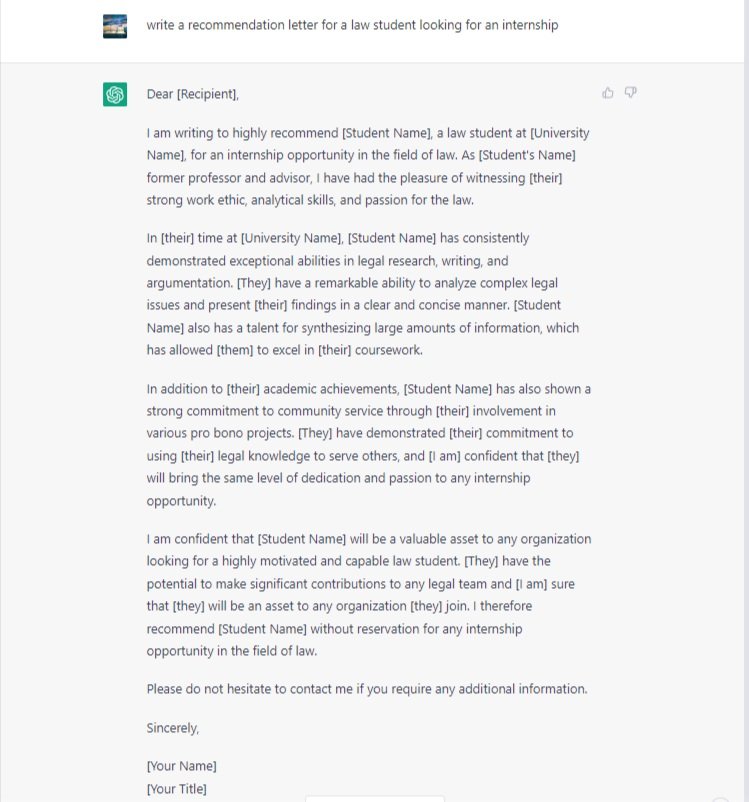I start teaching one of my favorite courses, International Business Law (IBL), next week. I try to keep the course updated as much as possible, not just in terms of content, but also in terms of what’s going on out in the real world. This year, it’s hard to ignore the impact of ChatGPT in how we - the teaching staff - must prepare assignments and adjust our teaching accordingly.
My alma mater where I got my Juris Doctorate - University of Minnesota (go Gophers) - recently tested ChatGPT’s ability to draft law school exams, and according to their research, ChatGPT passed four classes based on its final exam with an average of a C+ across all exams. Although not great by any standard (e.g. this result would have placed a real student on academic probation), according to their research, “if such performance were consistent throughout law school, the grades earned by ChatGPT would be sufficient to graduate with a JD.” So that is an interesting development for sure.
My stance on this emerging technology is to embrace it to the extent feasible and incorporate it into what we are doing. Along these lines, I always conduct a pre-course survey for students taking IBL, asking them how they want to be tested, what they want to learn, and if there are things that they would like their teachers to know about them and so forth. This year, I added a question about their opinions and experiences with ChatGPT and other AI systems and while I got a handful of “I don’t know what that is”, there were also very informative answers from the students. For example:
“It’s an extremely disruptive piece of technology. I have used it from time to time, mainly to get the gears in my head rolling and for inspiration. Using it still feels a little bit too superficial.”
“Would prefer not to use this as it diminishes personal development.”
“It walks a fine line between cool technological development and dangerous rapidly developing tool that takes away development of critical thinking in people. We grew up without it, but future generations will already probably use it for their middle school essays and depend on it.”
So what I’ve learned from my students (thus far) is to experiment with it and to use it for specific/limited purposes (e.g. finding “inspiration”, conduct menial tasks with it, etc.), but not to over-rely on it or become complacent, thus stopping our cognitive development and dulling our capacities for critically analysis. I for one have been playing around with various tasks that I might be able to delegate to ChatGPT (entirely or partially), including the ghostwriting of recommendation letters. Just to give you an idea, here is a generic letter of recommendation that ChatGPT has drafted.
In all honesty, it’s not half bad right?! If I were to add a few personal anecdotes and individualized competencies, would students be satisfied with a letter of this caliber? For admission offices, would this letter be a factor that would contribute to the student’s candidacy? I would be quite curious about their inputs, but I for one think that there is some added value here for teachers and staff members who are asked to draft dozens of letters each year. If we are able to reduce some of the time we invest into our administrative tasks such as this - without compromising too much on quality - that is more time we can spend on teaching or researching. If only there was an AI system that would grade exams, now that would be a true game changer!
